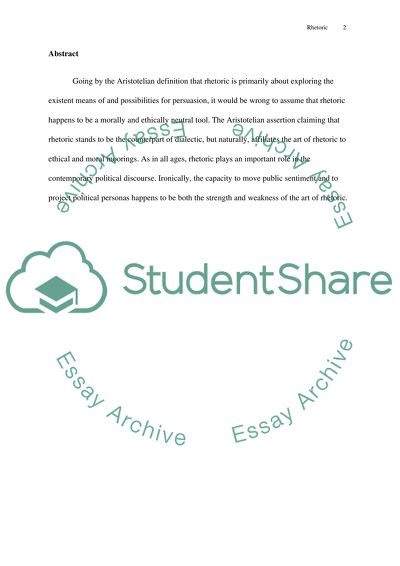Cite this document
(“Outline Aristotle's definition of rhetoric as it relates to dialectic, Research Paper”, n.d.)
Retrieved from https://studentshare.org/english/1628584-outline-aristotles-definition-of-rhetoric-as-it-relates-to-dialectic-and-identify-the-role-rhetoric-plays-in-our-present-day-political-process
Retrieved from https://studentshare.org/english/1628584-outline-aristotles-definition-of-rhetoric-as-it-relates-to-dialectic-and-identify-the-role-rhetoric-plays-in-our-present-day-political-process
(Outline Aristotle'S Definition of Rhetoric As It Relates to Dialectic, Research Paper)
https://studentshare.org/english/1628584-outline-aristotles-definition-of-rhetoric-as-it-relates-to-dialectic-and-identify-the-role-rhetoric-plays-in-our-present-day-political-process.
https://studentshare.org/english/1628584-outline-aristotles-definition-of-rhetoric-as-it-relates-to-dialectic-and-identify-the-role-rhetoric-plays-in-our-present-day-political-process.
“Outline Aristotle'S Definition of Rhetoric As It Relates to Dialectic, Research Paper”, n.d. https://studentshare.org/english/1628584-outline-aristotles-definition-of-rhetoric-as-it-relates-to-dialectic-and-identify-the-role-rhetoric-plays-in-our-present-day-political-process.


